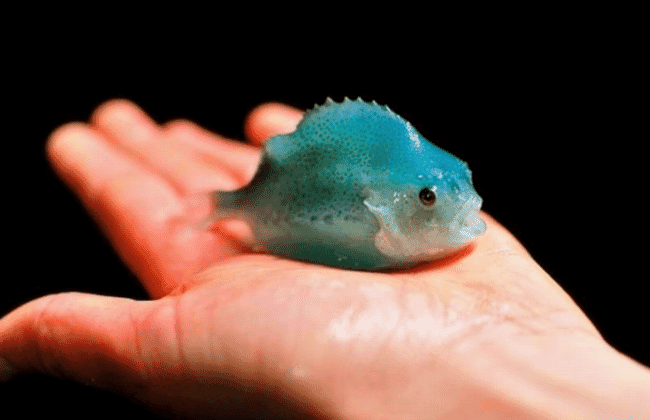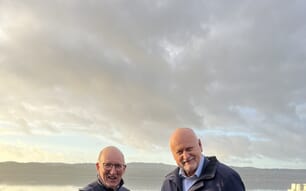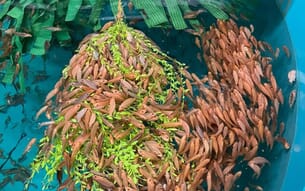
© Ocean Matters
The scholarships are being offered to UK or EU residents for research into the welfare of cleaner fish in the salmon industry, in a project that will involve the use of artificial intelligence (AI). The scholarships provide 1-year funding with a 3-month period to complete the thesis.
The project aims to use novel techniques to monitor fish health and welfare. CSAR is working in collaboration with Visifish on AI-based tools to detect fish with poor health and welfare.
This is a unique opportunity to tackle one of the biggest challenges of aquaculture: to monitor cleaner fish health and welfare. Cleaner fish, such as wrasse and lumpfish, are used by the salmon industry to combat sea lice and reduce dependence on anti-parasitic chemicals. But very little is known about cleaner fish health and welfare.
Click here to apply for the scholarship.
Successful applicants will combine know-how on aquaculture and fish welfare, machine vision and deep-learning algorithms to develop and optimise tools to assess and improve the welfare of cleaner fish in salmon cages. The project will provide the first insight into behavioural, health and welfare effects of multi-species aquaculture. This will make the long-term use of cleaner fish in the salmon sector more sustainable and allow Wales (the UK’s largest producer of cleaner fish) to further expand this industry.
Participants will develop tools to assess, maintain and optimise cleaner fish welfare through machine learning. They will be using Visifish telematics and AI tools to monitor mortality, feeding frequency, growth rate, as well as individual and population-based behaviour, useful for animal health and welfare assessment. They will also be involved baseline testing of fish interactions at CSAR’s state-of-the art aquaculture facilities using the Lumpfish Operational Welfare Score Index as a benchmark protocol to access welfare.
The work will be based at CSAR and successful applicants will join the FISHBEE group under the supervision of Professor Carlos Garcia de Leaniz and Professor Sonia Consuegra.
While some of the data have already been collected, offering the opportunity to work remotely, participants are encouraged to do lab work and interact with other colleagues when possible.




